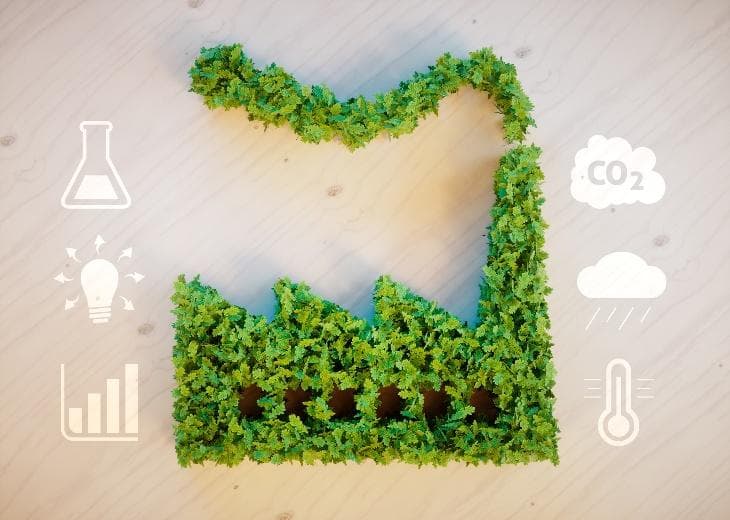UCELIA has recently changed its name but has not changed course! UCELIA’s approach in the field of health, safety and the environment remain a priority and very active.
The National Low Carbon strategy (NLCS) describes a road map for France on how to steer its climate change mitigation. It sets the limit of greenhouse gas (GHG) emissions in the short-medium term, which “carbon budget” is established for a five-year period up to 2033.
It details carbo emission reduction targets by sector of activity, by defining sectoral carbon budgets. The GHG emission reduction targets must be taken into account by local and national public and private actors in their own planning and investment decisions.
In full agreement with these objectives, UCELIA wishes to be fully in line with this policy by implementing a company decarbonization plan.
The decarbonization process
- Assessment: The project begins with a diagnosis of the company’s current strategy and its compatibility with the institution’s expectations (State, local authorities, etc.)
- Challenge: Identify the carbon issues of the company, carry out an analysis of the activity in order to be part of a decarbonization process, compare the company’s performance with the sectoral issues.
- Vision: Develop a corporate vision of the implementation of tis decarbonization, create the associated roadmap, commitment from the management team to follow the roadmap.
- Strategy: Develop an operational plan that meets the decarbonization requirements of the company thanks to the proposed vision.
- Action: Implementation of the strategic plan at all levels of the company.

GHG assessment of completed scopes 1 and 2
UCELIA has completed its assessment and has defined its action plan. This plan has been presented to the region and will be eligible for “ADEME” and Nouvelle Aquitaine region funding! ADEME is a public industrial and commercial institution (EPIC) under the supervision of the ministries of ecological transition and territorial cohesion, energy transition and higher education and research. They are at the service of all actors (government, businesses, communities, citizens) to accelerate the reduction of energy consumption, develop renewable energies and reduce greenhouse gas emissions. They support innovation and research. All actions will be put in place to converge toward the most carbon-free production possible in line with our values and the values of our customers!
